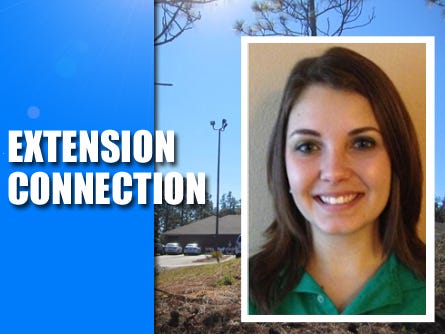
Joining adults in the kitchen helps kids learn about foods. Most 4-H cooking projects explore the science, nutrition and history of cooking while promoting healthy eating and resource management.
Of course, safety comes first. Follow these tips:
•Have supervision, and never allow kids to cook without asking for permission.
•Tell children that cleanliness is good. They should keep hands and surfaces clean, and children with long hair need to tie it up.
•Ensure kids don't wear loose clothing that can catch on fire.
After setting safety rules, help youths identify, and know how to safely use, common kitchen tools including knives and other sharp objects. Ditto for hot items such as a broiler, toaster, stove or microwave.
Teach kids about measuring methods and demonstrate how to keep hot foods hot and cold foods cold. We certainly don’t want foodborne illnesses coming our way.
Help kids read directions and follow recipes. They should ensure they have all their ingredients before beginning a cooking project.
If the project requires cutting skills, start simple with something soft like a banana and a plastic knife. Demonstrate the technique and have them try the actions.
And when working with knives — you guessed it! — safety comes first. Lay down these ground rules:
•Cut with caution
•Focus on one task at a time
•Never point a knife at a person
•Always hold the knife by its handle
•Use a cutting board
•Go slowly
Next, demonstrate how to wash produce and handle meat safely so you do not have cross-contamination of foods.
Above all, help kids find what it is about cooking that excites them! Recipes for snacks, side dishes, main dishes, quick breads and desserts are great starters for youth cooking.
Thank you to Paula Davis, Bay County 4-H youth development agent, and the Northwest District Volunteering in the Panhandle Newsletter for this information on food and nutrition.
FIND IT ONLINE
Adults can teach children how to select, prepare and store food. You can help kids explore cooking methods such as roasting, stir frying, grilling, barbecuing, smoking, boiling, steaming, braising and microwaving. MyPlate, a USDA resource, can help you plan meals and make balanced food choices.
Haley Worley is an agent at the University of Florida's Institute of Food and Agricultural Sciences extension office in Crestview.
This article originally appeared on Crestview News Bulletin: EXTENSION CONNECTION: 4-H, a recipe for success in the kitchen
